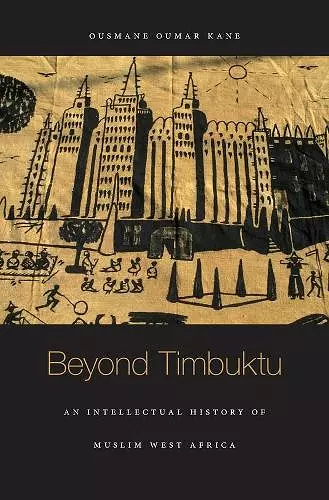Beyond Timbuktu
An Intellectual History of Muslim West Africa
Format:Hardback
Publisher:Harvard University Press
Published:30th Jun '16
Should be back in stock very soon

Renowned for its madrassas and archives of rare Arabic manuscripts, Timbuktu is famous as a great center of Muslim learning from Islam’s Golden Age. Yet Timbuktu is not unique. It was one among many scholarly centers to exist in precolonial West Africa. Beyond Timbuktu charts the rise of Muslim learning in West Africa from the beginning of Islam to the present day, examining the shifting contexts that have influenced the production and dissemination of Islamic knowledge—and shaped the sometimes conflicting interpretations of Muslim intellectuals—over the course of centuries.
Highlighting the significant breadth and versatility of the Muslim intellectual tradition in sub-Saharan Africa, Ousmane Kane corrects lingering misconceptions in both the West and the Middle East that Africa’s Muslim heritage represents a minor thread in Islam’s larger tapestry. West African Muslims have never been isolated. To the contrary, their connection with Muslims worldwide is robust and longstanding. The Sahara was not an insuperable barrier but a bridge that allowed the Arabo-Berbers of the North to sustain relations with West African Muslims through trade, diplomacy, and intellectual and spiritual exchange.
The West African tradition of Islamic learning has grown in tandem with the spread of Arabic literacy, making Arabic the most widely spoken language in Africa today. In the postcolonial period, dramatic transformations in West African education, together with the rise of media technologies and the ever-evolving public roles of African Muslim intellectuals, continue to spread knowledge of Islam throughout the continent.
Medieval Timbuktu was a wealthy city whose great libraries allowed it to flourish as a center of learning and scholarship. Kane’s compelling intellectual history of West Africa places Timbuktu within a much broader tradition of Islamic learning in the region, which was home to other medieval knowledge centers and which continues to advance the study of Arabic philology even today. Kane wants to show that West Africa has been much more central to Islam than has been typically understood. His wide-ranging book focuses on the intellectual traditions of the region and its role in the production and circulation of key Arabic-language texts regarding religion, law, and ethics. -- Nicolas van de Walle * Foreign Affairs *
Beyond Timbuktu is an insightful analysis of how, through the centuries and from different perspectives, Muslim intellectuals have shaped the production, dissemination, and content of Islamic knowledge in relation to the socio-political contexts in which they lived. As Ousmane Kane demonstrates, this process continues today in the ways the transformation of Muslim educational institutions and availability of new communication technologies make possible a resurgent Muslim public presence. No similar overview of West African Muslim intellectual history exists. -- Louis Brenner, School of Oriental and African Studies, University of London
A fascinating and comprehensive analysis of the intellectual history of Islamic West Africa. This original book not only fills a gap but also challenges traditional readings of classical texts. -- Chouki El Hamel, Arizona State University
- Nominated for Grawemeyer Award in Religion 2017
ISBN: 9780674050822
Dimensions: unknown
Weight: unknown
296 pages